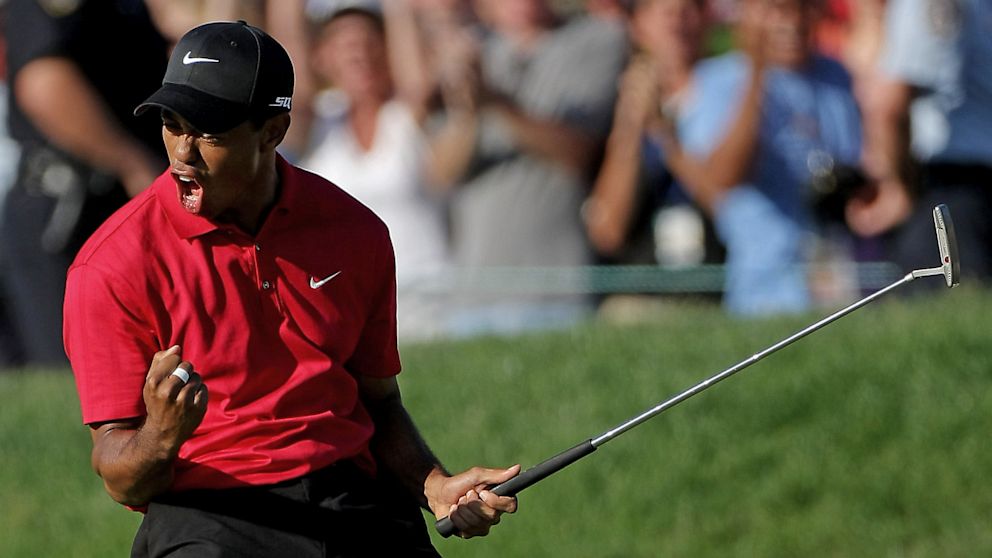Tiger Woods Effect: Intimidation Only Works If We Let It
Can an intimidating rival force others into mistakes?

July 23, 2013 -- When approaching competitive situations in life whether sports or politics, is it more about the play of the star or is it more about the underperformance of other competitors? After watching the spectacular finish of the British Open and Phil Mickelson's amazing final day and Tiger Woods' disappointing round, it is a timely question.
Jennifer Brown, a noted professor and economist, wrote a few years ago on what she calls the "Tiger Woods Effect." While writing prior to Woods' personal scandal in 2009, she shows evidence that much of how Woods won was through intimidation and other great players performing worse around him in tournaments.
Her thesis was that his dominating presence actually made other golfers play worse and under perform. And it is interesting to note that in Majors Tiger never came from behind after 54 holes to beat folks; he merely made other players wilt or make mistakes around him.
Tiger Woods who seemed on an inexorable path to break Jack Nicklaus's Majors win record of 18, has not won a major in more than five years. He has come close, but he hasn't dominated the sport as he did prior to his scandal. And though Brown has not updated her research, my layman's analysis of what has happened in majors is that players are no longer folding in Tiger's presence. And other great players are actually not falling back around him but playing some of their best golf when he is close.
Let's look at the recent British Open. Over the final weekend, while Tiger played as a mortal professional golfer would, Mickelson raised his game to a whole new level. Phil came from way back while Tiger was in the hunt, and posted what many have referred to as one of the best back nines ever played in a Major. He was no longer surfing (or falling) in Tiger's wake, but raising his game and playing better.
The explanation of what has happened to Tiger over the last few years in Majors has less to do with his play or his injuries, and more to do with the play of others in the field. Players no longer are afraid of Tiger. They see Tiger as a flawed human being who they can beat. The other players now raise their game as opposed to being intimidated by a super star. Because of his personal failings, Tiger is not seen as a golf God, but as a mere mortal walking through life as an imperfect human being. And this has shown up on the golf course in the Majors over the last five years. The rest of the field isn't intimidated by his large presence, and because of that they are playing at a normal or higher level.
This is actually a great lesson about life and politics. When I look back at why certain people have won in politics, or why certain people have succeeded in business or media or other high profile forums, it is as much about their strengths as it is about how they make other competitors perform around them. Super star performers, when they are perceived as dominant, make competitors perform worse around them. They make others make mistakes, which in politics causes more losses than most any other effect.
If you take a look at past debate performances, when one person dominates a stage, it is not so much about the command performance of one, it is about how the other collapses or underperforms in their own right. Though President Bush and Obama ended up winning re-election, their first debate performances in their re-election campaigns were dismal.




